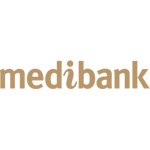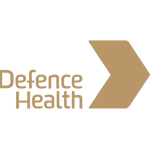Keratoconus is a progressive eye disease which causes blurred and distorted vision
Discover how you can treat this condition and get your vision under control
Keratoconus can make performing daily activities increasingly difficult
In this video, Dr. Nick Toalster discusses the everyday hassles of living with keratoconus
Useful information about keratoconus
Keratoconus incidence / prevalence
Keratoconus is an eye condition that typically occurs during your teenage years and progresses into your mid-20’s and 30’s.
The condition hinders your eye’s ability to focus light onto your retina, resulting in blurred and distorted vision.
Keratonconus causes
Keratoconus develops when your cornea – the clear window at the front of your eye – starts to thin, causing a cone-shaped bulge to develop. This is because the cornea is weaker than usual, and can be exacerbated by eye rubbing. Because of this, there is a high correlation between keratoconus and allergies. Keratoconus often results in irregular astigmatism, where light focuses inaccurately onto the back of your eye.
Keratoconus diagnosis and examination process
We can diagnose keratoconus by performing a comprehensive eye examination that uses a variety of instruments to assess your vision and eye health. These tests are painless and non-invasive.
The tests include:
- Eye refraction
- Slit-lamp examination
- Keratometry
- Computerized corneal mapping
Keratoconus treatments
Depending on the severity of your condition, we will select one of the following treatments:
Mild keratoconus
Treatments include:
- Spectacles
- Soft contact lenses
Moderate keratoconus
Treatments include:
- Hard contact lenses
- Piggyback lenses
- Hybrid lenses
- Scleral lenses
- Collagen cross-linking
Severe keratoconus
Treatments include:
- Corneal inserts
- Cornea transplant
Keratoconus FAQs
What are the early signs of keratoconus?
In the beginning, keratoconus can start with slight blurring and sensitivity to light in one or both of your eyes. Clinical signs of keratoconus typically become apparent around late teens to early 20s. As the year’s pass, progression tends to slow down and the keratoconus can often stabilise.
Who is at risk of keratoconus?
While keratoconus is not a rare eye disease, it also does not occur very often. So far, there has not been any definitive answer as to why keratoconus occurs in one person and not the other. Eye rubbing and ocular allergies are closely linked with keratoconus, hence in the early stages of the disease, there is a lot of emphasis on limiting eye rubbing.
How does keratoconus progress and what is the treatment?
In the early stages of keratoconus, glasses or contact lenses can be used to correct refractive error and astigmatism. If the disease progresses, the cornea becomes thinner and more cone-shaped. Your eye doctor may suggest rigid gas permeable (also referred to as RGP) contact lenses to correct your vision. To maintain good vision, you will likely need frequent checkups and contact lens fittings to ensure you are receiving the best possible correction for keratoconus. Usually, regular checkups and the right contact lenses can help maintain good vision. In extreme cases of keratoconus, your doctor may discuss the possibility of a cornea transplant. This may be due to corneal scarring or other issues.
How to get help at our Brisbane eye clinic
Regain control in 3 easy steps

Step 1 – Reach Out
Give us a call on: 3725 0222 and we’ll guide you towards an initial appointment.

Step 2 – We’ll Meet
During your initial appointment, I will take a detailed history and examination to make an accurate assessment of the issue at hand.

Step 3 – Your Vision Restored
We will treat you at one of our state-of-the-art Brisbane eye clinic facilities, giving you the optimism and confidence to live life at ease.
Take the first step to stop keratoconus in its tracks
Book a consultation, and one of our Brisbane eye experts will guide you towards the right treatment for your keratoconus so you can take back control of your life
As seen on TV
OKKO aims to provide life-changing vision transformation to patients
Insurers
We’ve got you covered, OKKO is pleased to work with all the insurers below:
Links to authoritative resources on keratoconus
Our Brisbane eye specialists
We are dedicated to providing you with the best possible eye health and vision outcomes

Dr. Matthew Russell, MBChB, FRANZCO
Brisbane Eye Surgeon
I am a specialist ophthalmic microsurgeon, internationally trained retinal surgeon, medical retinal diseases specialist, and cataract surgeon. With a career that spans over 15 years, I have mastered the ability to achieve precise results with the aim of helping patients regain their confidence and youthful energy.

Dr Judy Ku, MBChB, FRANZCO
Specialist ophthalmic surgeon
I am a specialist in glaucoma, cornea & external diseases and cataract surgery. I am passionate about assisting my patients to achieve their full visual potential. I feel extremely privileged to have the opportunity to restore sight and to improve people’s quality of life.
















